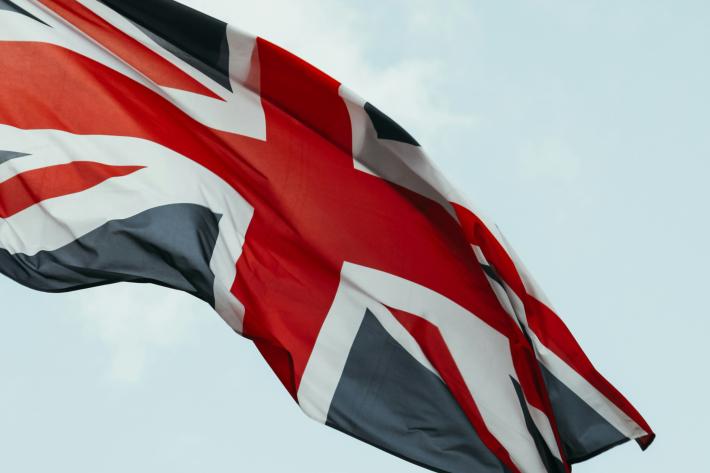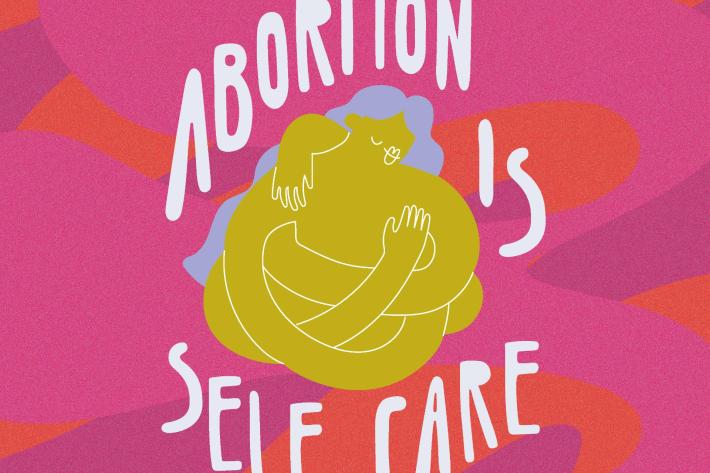
Spotlight
A selection of news from across the Federation

European Commission's new Women's Rights Roadmap includes SRHR—Now we need action
On 7 March, the EC released a new political declaration committing to uphold and advance women's rights. We welcome the inclusion of SRHR and other key topics. Now impactful actions are needed.
Filter our news by:


| 12 March 2025
European Commission's new Women's Rights Roadmap includes SRHR—Now we need action
On 7 March 2025, the European Commission released its new Roadmap for Women’s Rights - a political declaration that reaffirms its determination to uphold gender equality and sets out a long-term vision for how it will advance women’s rights. IPPF EN welcomes this crucial commitment at a time when ultraconservative movements are gaining influence in the EU and around the world, threatening progress on women's rights, including their sexual and reproductive health and rights (SRHR). We particularly value the inclusion in the Roadmap of the following key commitments, which are at the heart of our demands to the EU: 1. Highest Standards of Health The Roadmap reiterates that every woman has the right to the highest attainable standards of physical and mental health, with notably a focus on SRHR. It commits to supporting and complementing health action by Member States in this field, in full respect of the Treaties. IPPF EN strongly supports this inclusion of SRHR in the Roadmap, by which the European Commission highlights that SRHR are women’s rights and part of EU values. But it is important to note that SRHR are not only a health issue – they are also fundamental rights intertwined with the clear EU priorities of achieving gender equality and fighting against sexual and gender-based violence. We urge the EU to take bold, actionable steps in the upcoming Gender Equality Strategy to implement international commitments, international human rights and public health standards on SRHR, and ensure that Member States guarantee access to comprehensive SRHR services for all in the EU, including safe and legal abortion. Other objectives in the Roadmap include ensuring respectful and high quality obstetric, gynaecological, antenatal, childbirth and postnatal care, free from discrimination and harmful practices; promoting gender-sensitive medical research, clinical trials, diagnostics and treatments; and ensuring access to affordable menstrual hygiene products and contraception. IPPF EN welcomes the prioritisation of obstetric care, of which access to abortion care is an integral part; and calls for the recognition and combating of all forms of obstetric and gynaecological violence, including mistreatment during and denial of abortion care. 2. Freedom from Gender-Based Violence The Roadmap outlines actions to combat all forms of violence against women and girls, including sexual violence and rape, based on lack of consent, and to ensure support and protection for victims of violence. IPPF EN urges Member States to provide access to sexual and reproductive healthcare services to victims of sexual violence, which should be free of charge, sufficiently resourced and accessible at all times and throughout the country, in line with the EU Directive on Violence Against Women. 3. Comprehensive Sexuality Education We strongly welcome the inclusion of comprehensive sexuality education promotion in the Roadmap. Comprehensive sexuality education, which includes consent education, is essential for enabling young people to form happy, healthy, and safe relationships free from violence and discrimination. 4. Institutional Mechanisms and Funding The Roadmap stresses the need for strong institutional mechanisms and sustainable funding for gender equality policies and women’s rights organisations. IPPF EN calls for the priorities outlined in the Roadmap, and the forthcoming Gender Equality Strategy, to be adequately funded, particularly in light of the upcoming negotiations on the EU Multiannual Financial Framework. A strong women’s rights movement is the most effective way to counter threats of retrogression. The EU should increase its protection and political and financial support to organisations and human rights defenders who fight for women’s rights, including SRHR. 5. Intersectionality The Roadmap recognizes the importance of addressing intersectional discrimination, but we regret the omission of ‘gender identity’, ‘sexual characteristics’, and ‘migration status’ as discrimination grounds. We call on the EU to address the specific needs of trans, non-binary, intersex, and migrant and undocumented women, who face unique challenges. “It is a welcome first step that SRHR and other crucial topics have been included in the Roadmap for Women’s Rights. The Roadmap should now pave the way for the new EU Gender Equality Strategy post-2025 and be followed up with impactful actions. We stand ready to work with the European Commission and Member States to transform these principles into reality,” said Micah Grzywnowicz, IPPF EN Regional Director. Image credit: Fátima Bravo for Fine Acts

| 20 January 2025
Prioritising Safety: IPPF is Leaving X
As an organisation dedicated to promoting and protecting the health, rights, and dignity of all individuals, IPPF must prioritise the safety and well-being of our community in every space we occupy. After careful consideration, we have decided to leave the platform X, effective 20 January 2025. Unfortunately, X no longer provides the safe and supportive environment that our community deserves. The increasing prevalence of harmful discourse and the platform's failure to adequately address it have made this decision necessary. We are also deeply concerned about Meta’s new policy updates announced in the beginning of January, which raise critical questions about privacy, misinformation, and the safety of vulnerable groups online, including women, migrants, transgender people and the LGBTQIA+ community. As advocates for sexual and reproductive health and rights, we must ensure the digital spaces we engage with uphold the values of equity, inclusion, and accountability. The growing public outcry over censorship and restricted exposure to critical topics, such as Palestine-related content, on platforms like Meta and X, highlights the urgent need for transparency, equity, and fairness in digital spaces. These principles remain central to our advocacy. Our commitment to creating meaningful conversations and driving positive change remains steadfast. You can continue to connect with IPPF European Network on LinkedIn, via our new Bluesky account, or the IPPF EN website, where we will remain active and responsive. We thank you for your continued support and invite you to join us in advocating for safer and more equitable digital spaces for all. Together, we can build a world where everyone can thrive—online and offline. #DigitalSafety
















